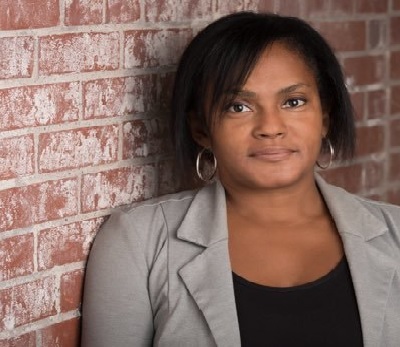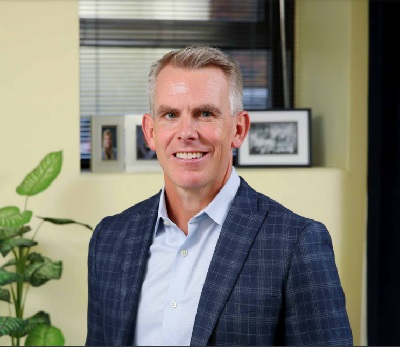News
» Go to news mainCOVID‑19, Simulation, and the Second Wave
Physicians, nurses, respiratory therapists, managers and other health professionals gathered on MS Teams Live in late October to learn more about the dynamics of COVID-19 transmission, infection, testing, prevention and more, in preparation for the second wave of the pandemic.
The Simulation Education Network and Dalhousie’s Office of Continuing Professional Development and Medical Education co-organized and hosted the conference, which featured Dr. Lynn Johnston , professor and recently retired head of Dal’s Division of Infectious Diseases, Dr. Gaynor Watson-Creed, Nova Scotia’s deputy chief medical officer of health, and Dr. Tim Willett, an expert in medical simulation training and CEO of Simulation Canada.
To watch the full presentation, visit this link.
Dr. Lynn Johnson discussed transmission in detail, noting that studies show smaller aerosols can stay suspended in the air for a significant length of time and travel relatively long distances, which has implications for planning precautions in health-care settings—particularly when aerosol-generating medical procedures are taking place. She emphasized that, even with personal protective equipment (PPE), health staff can be vulnerable and it is essential to avoid contact with the virus. Frequent hand washing and physical distancing continue to be very important measures. Eye protection is a very important component of the PPE and mustn't be overlooked, she said, particularly when community spread occurs.
Dr. Johnson also shared the pros and cons of several types of tests, noting that molecular testing has more reliable sensitivity than the new antigen tests.
 Dr. Watson-Creed explained why the Atlantic Bubble had been so successful— border controls and quarantine kept numbers low enough for Public Health to stay on top of the testing, tracing and isolating required to stamp out chains of transmission without shutdowns. She noted that, in the second wave, Public Health would tread a difficult middle path:
Dr. Watson-Creed explained why the Atlantic Bubble had been so successful— border controls and quarantine kept numbers low enough for Public Health to stay on top of the testing, tracing and isolating required to stamp out chains of transmission without shutdowns. She noted that, in the second wave, Public Health would tread a difficult middle path:
“What we did in wave one—close everything—is easy. So is keeping everything open,” she said. “The middle ground is what is very challenging… the nuanced response, the adjustments to changing circumstances. We will base closures on epidemiology, the evidence of what is leading the spread. As long as the cluster is small, we will be doing targeted interventions.”
Dr. Watson-Creed also noted that the risk of transmission from coughing, shouting or singing is highest just before symptoms of illness appear—leading to a tricky prevention scenario and highlighting the importance of masks. She warned that Nova Scotia’s initial vaccine allotments would be small, roughly 10,000 doses at a time.
“If it turns out two doses are needed for immunity, that would be just 5,000 people at a time. It will take months,” she said, adding firmly that, “Herd immunity from natural disease is not a ‘thing’ with this virus. This only works if exposure to the virus produces lasting immunity, which is so far not the case with COVID.”
Dr. Tim Willett from Simulation Canada wrapped up the presentations with a discussion and evidence of the importance of simulation training in a pandemic—particularly in terms of mastering the allimportant tasks of safely donning and doffing PPE. He noted that practicing procedures and scenarios through simulation reduces confusion and cognitive load for people when doing things “for real,” reducing stress and improving performance.
Simulation is also a powerful means of testing the effectiveness of PPE, Dr. Willett said, when fluorescent powders are used to illustrate how far and wide a virus could spread and whether or not it could breach the protective barriers of the equipment. Finally, telesimulation provides a way to train health-care staff in remote locations, safely.
“It was a very informative evening that shed light on where we have been, what we have learned, and how all this new knowledge gained will translate into the policies and practices that will carry us as safely as possible through the second wave,” says Dr. Stephen Miller, Dal’s new associate dean of continuing professional development and medical education. “We will continue to host these accredited interprofessional CPD sessions on a regular basis to address issues as they emerge through the pandemic.”
Meet Dr. Stephen Miller, Dal Med ’s New CPD Lead
 Dr. Stephen Miller brings compassion, vision and a sense of humour to his new role as Dalhousie’s associate dean of continuing professional development and medical education (CPDME). He also brings years of experience in developing simulation training programs, as well as a knack for working with learners, from his previous role as Dal’s assistant dean of the Skilled Clinician Program and Interprofessional Education in the MD program.
Dr. Stephen Miller brings compassion, vision and a sense of humour to his new role as Dalhousie’s associate dean of continuing professional development and medical education (CPDME). He also brings years of experience in developing simulation training programs, as well as a knack for working with learners, from his previous role as Dal’s assistant dean of the Skilled Clinician Program and Interprofessional Education in the MD program.
“I have extensive experience with undergraduate students and residents, so shifting my focus to CPD is a good challenge with so much change in our clinical and education environments in the past year,” Dr. Miller says. “It’s an especially rewarding time to be working on behalf of our practicing physicians and other health professionals. They are being confronted with so much new information, and I am grateful to work with a strong CPDME team to be able to develop and support innovative programs to ensure my colleagues are well prepared for what they must face.”
Dr. Miller notes that COVID-19, wellness, equity, diversity and inclusion are but a few of the areas that have taken centre stage this year and require further attention to update the community of providers.
In addition to his role as associate dean CPDME, Dr. Miller is the Faculty of Medicine’s director of simulation and an associate professor in the Department of Emergency Medicine at Dalhousie University, working in the emergency department at the QEII Health Sciences Centre. He holds a Master of Education, on top of his MD, and has completed residency training in internal medicine and family medicine at Dal, in addition to his certificate of special competence in emergency medicine.
Recent News
- New global study Highlights the Biological Roots of Anxiety
- Dalhousie and NCIME launch first‑of‑its‑kind program in Membertou First Nation
- A message from Wanda M. Costen, PhD, Provost and Vice President Academic
- Rhodes scholar Sierra Sparks returns home to study medicine
- President Kim Brooks, Dr. Pat Croskerry appointed to Order of Canada
- Dal’s Highly Cited Researchers reflect on influential global research alliances
- A New Bursary Supporting Black Medical Students at Dalhousie
- Dalhousie’s first physician assistant cohort steps into Nova Scotia’s healthcare system
